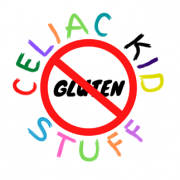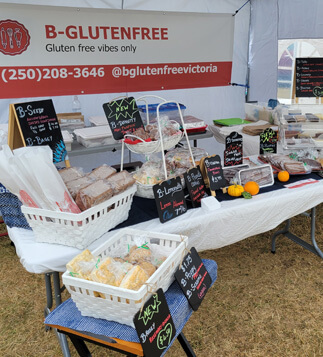‘Compelling’ Case for Vaccinating Celiac Disease Patients Against Bacterial Pneumonia

See below: Health Link BC – Who Should Get the Pneumococcal Disease Vaccine
Joe West, MD, an epidemiologist and honorary consultant gastroenterologist at the University of Nottingham, who helped conduct the study suggested, “The high hazard ratios around diagnosis were somewhat surprising—although this could be partly due to ascertainment bias—as was the relatively low rate of vaccination given the guidance. The persistent risk following diagnosis would suggest that greater efforts should be made in celiac disease to follow this guidance.”
Joseph A. Murray, MD, professor of medicine in gastroenterology at Mayo Clinic, in Rochester, Minn., agreed. For the past 15 years or so, he has advocated earlier pneumonia vaccination for patients with celiac disease. “I know several of the celiac experts do this, too,” he added.
Benjamin Lebwohl, MD, MS, assistant professor of clinical medicine and epidemiology at Columbia University Medical Center, in New York City, and an expert in celiac disease, called the study “compelling.”
The risk for CAP was highest among patients with celiac disease the closer they were to the time of diagnosis (HR, 2.31 within the first year) but remained elevated for more than five years, according to the researchers.
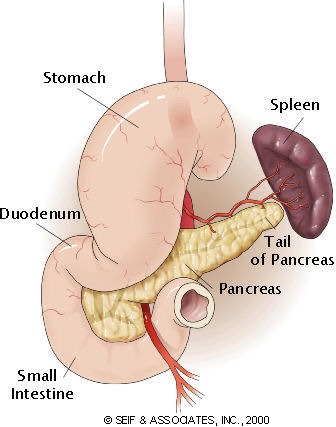 “We know that patients with celiac disease have diminished spleen function, which appears to affect their susceptibility to bacterial pneumonia. This is the first study, to my knowledge, that divides the risk of pneumonia in celiac disease according to vaccination status,” Dr. Lebwohl said.
“We know that patients with celiac disease have diminished spleen function, which appears to affect their susceptibility to bacterial pneumonia. This is the first study, to my knowledge, that divides the risk of pneumonia in celiac disease according to vaccination status,” Dr. Lebwohl said.
Pneumococcal vaccination is not routinely given to people younger than age 65 years unless they are at increased risk for pneumonia, Dr. Lebwohl said. “Whether all celiac disease patients should be given this vaccine is still debated, and guidelines differ on this point. There is little downside to pneumococcal vaccination, but we do not have gold-standard evidence from randomized trials that prove that pneumococcal vaccination prevents pneumonia in celiac disease patients younger than 65. The present study lends support to the practice.”
What does the spleen do?
The spleen plays an important role removing old red blood cells and holds a reserve of blood and also recycles iron. It is also synthesizes antibodies and removes antibody-coated bacteria and antibody-coated blood cells by way of blood and lymph node circulation. as the centre of activity of the mononuclear phagocyte system, (2) if the spleen is compromised in those diagnosed with celiac disease as Dr. West suggests, it may create a predisposition to certain infections.(3) In particular, there is an increased risk of infection and even sepsis from polysaccharide encapsulated bacteria, of which Streptococcus pneumoniae (pneumococcus) is one. (4)
Patients with celiac disease have a modestly increased risk for developing pneumonia, particularly in the first year after diagnosis, according to a study from the United Kingdom that suggests that clinicians should be more vigilant about vaccinating patients with the autoimmune disorder.
The study found that patients with celiac disease who are unvaccinated against pneumococcus are about 30% more likely to develop community-acquired pneumonia (CAP) than are unvaccinated people without celiac disease. The effect was not seen in people older than age 65 years, nor in patients with celiac disease who had received the vaccination.
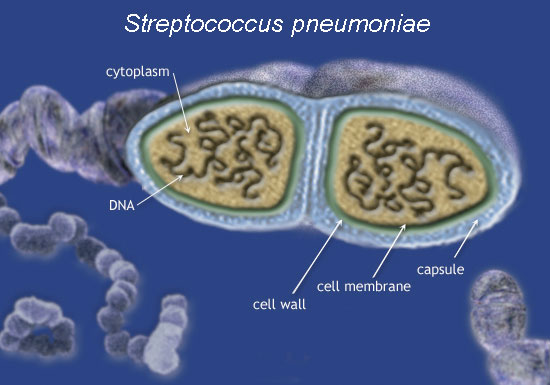 Community-acquired pneumonia (CAP) is one of the most common infectious diseases and is an important cause of mortality and morbidity worldwide. Typical bacterial pathogens that cause the condition include Streptococcus pneumoniae(penicillin-sensitive and -resistant strains), Haemophilus influenza (ampicillin-sensitive and -resistant strains), and Moraxella catarrhalis (all strains penicillin-resistant). (1)
Community-acquired pneumonia (CAP) is one of the most common infectious diseases and is an important cause of mortality and morbidity worldwide. Typical bacterial pathogens that cause the condition include Streptococcus pneumoniae(penicillin-sensitive and -resistant strains), Haemophilus influenza (ampicillin-sensitive and -resistant strains), and Moraxella catarrhalis (all strains penicillin-resistant). (1)
Health officials in the United Kingdom recommend that people with celiac disease be vaccinated against pneumococcus. However, only about 30% of people in the latest study had received the inoculation, regardless of whether or not they had celiac disease.
Dr West said the most plausible disease mechanism is that splenic dysfunction in people with celiac disease leaves them vulnerable to infection.
From Health Link British Columbia, “Who Should Get the Pneumococcal Disease Vaccine”
Pneumococcal Disease – About the Vaccine
Vaccination is the best way to protect against pneumococcal infection, a serious and sometimes fatal disease.Vaccines are very safe. It is much safer to get the vaccine than to get pneumococcal disease.
There are two types of vaccines that protect against either 13 or 23 types of pneumococcal bacteria.
Pneumococcal Conjugate (PVC 13) Vaccine:
In June of 2010, the PCV 13 vaccine replaced the PCV 7 vaccine which had been used in BC since 2003. The PCV 13 vaccine protects against 13 types of pneumococcal bacteria.
The pneumococcal conjugate (PVC 13) vaccine is free for children as part of their routine immunizations. Children get the 1st dose at 2 months of age, the 2nd at 4 months, and the 3rd at 12 months.
An extra dose of vaccine is given at 6 months of age for children who have
- No spleen, or a spleen that is not working properly
- Sickle-cell disease
- An immune system weakened by disease or medical treatment
- Chronic liver disease, including cirrhosis, chronic hepatitis B or hepatitis C
- Chronic kidney, heart or lung disease
- An islet cell or solid organ transplant, or a cochlear (inner ear) implant, or are waiting for one
- Had a stem cell transplant
- A condition that makes it hard to clear fluids from the mouth or throat
- Diabetes, cystic fibrosis or a chronic cerebrospinal fluid leak
Children under 5 years of age with any of the above medical conditions who completed a PCV 7 vaccine series should also receive 1 dose of PCV 13 vaccine.Some people 5 years of age and older with certain medical conditions are at high risk of pneumococcal disease. The PCV13 vaccine is provided free to:
- Children 5 to 18 years of age with no spleen, or a spleen that is not working properly
- Adults and children 5 years of age and older with HIV infection or who have had a stem cell transplant
For more information about the PCV 13 vaccine, including the benefits, possible reactions after the vaccine and who should not get the vaccine, see the HealthLinkBC File: Pneumococcal Conjugate (PCV 13) Vaccine.
Pneumococcal Polysaccharide Vaccine:
The pneumococcal polysaccharide vaccine protects against 23 types of pneumococcal bacteria. This vaccine is not part of the routine schedule of childhood immunizations. It is however provided free to people at high risk of getting sick from pneumococcal infections, including:
- Seniors 65 years and older
- Residents of any age living in residential care or assisted living facilities
The vaccine is also provided free to anyone who is 2 years of age and older with the following conditions:
- No spleen, or a spleen that is not working properly
- Sickle-cell disease
- An immune systems weakened by disease or medical treatment
- Chronic liver disease, including cirrhosis, chronic hepatitis B or hepatitis C
- Chronic kidney disease
- Chronic heart or lung disease
- An islet cell or solid organ transplant, or a cochlear (inner ear) implant, or those who are waiting for one
- A stem cell transplant
- Diabetes, cystic fibrosis, or a chronic cerebrospinal fluid leak
- An alcohol dependency
- Homeless persons
- Users of illicit drugs
A 2nd dose of vaccine is recommended for people with certain medical conditions. Speak with your health care provider to find out if you need a 2nd dose of vaccine and when you should get it.
For more information about the vaccine, the benefits, possible reactions after the vaccine and who should not get the vaccine, see the HealthLinkBC File: Pneumococcal Polysaccharide Vaccine.
About the disease
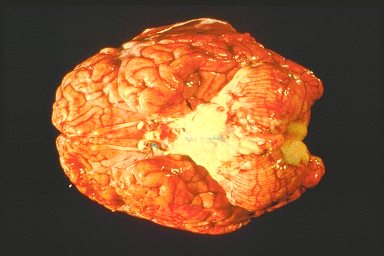
Photo courtesy of Centers of Disease Control and Prevention.
- Pneumococcal infection is caused by a germ (or bacteria) which can attack different parts of the body
- Pneumococcal infections can cause serious and life-threatening infections including meningitis, (an infection of the lining that covers the brain), and septicemia, an infection of the blood
- For every 4 children who get sick with pneumococcal meningitis, 1may die
- Pneumococcus is spread by coughing, sneezing, or contact with respiratory secretions
- Pneumococcal disease is now rare in BC because of routine childhood vaccination programs
- There is now less childhood pneumococcal disease in BC because of routine childhood vaccinations programs
(1) https://emedicine.medscape.com/article/234240-overview
(2) https://en.wikipedia.org/wiki/Spleen
(3) https://en.wikipedia.org/wiki/Spleen#Decreased_function
(4) https://en.wikipedia.org/wiki/Polysaccharide_encapsulated_bacteria#cite_note-jakobsen-1



